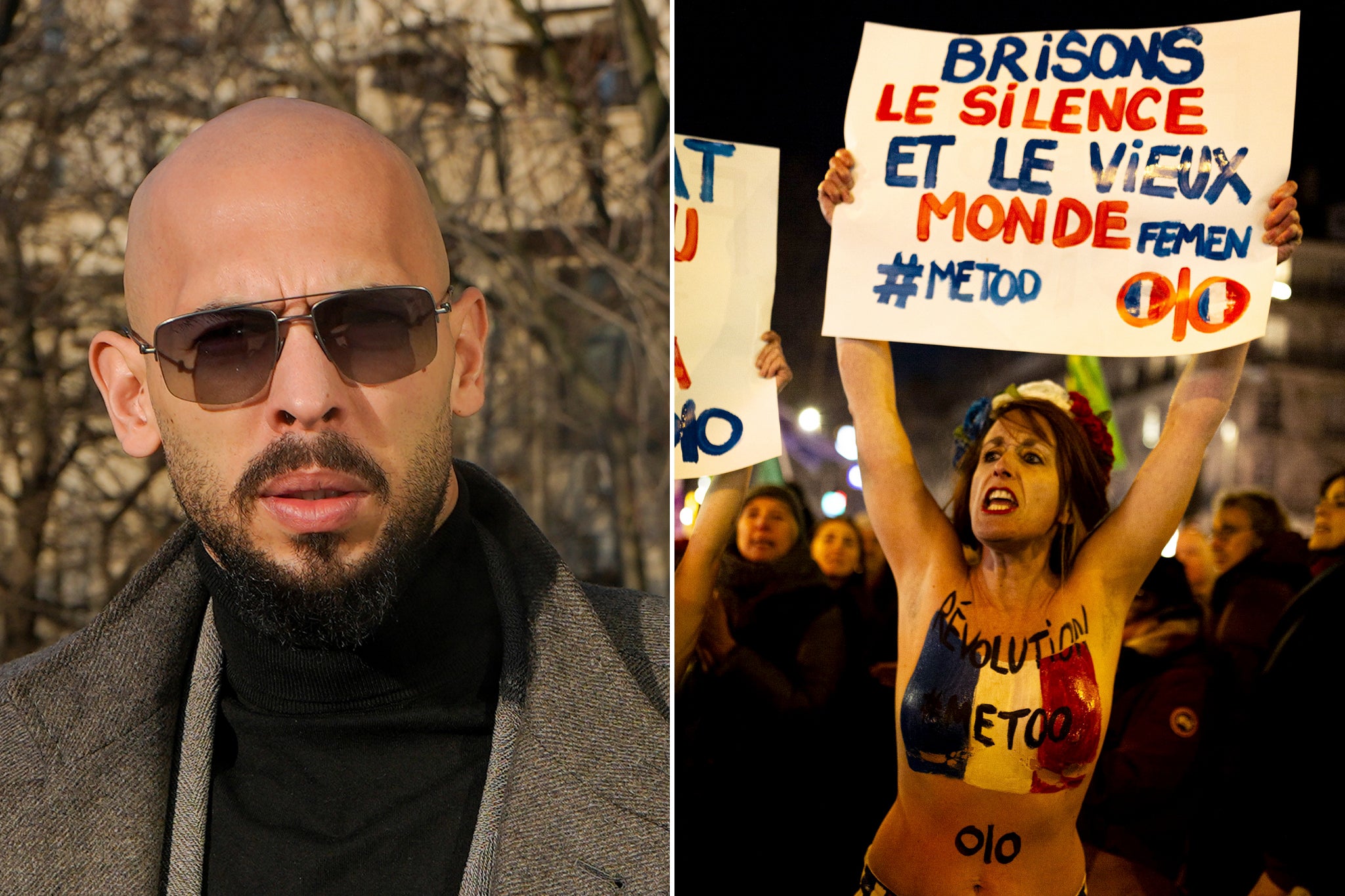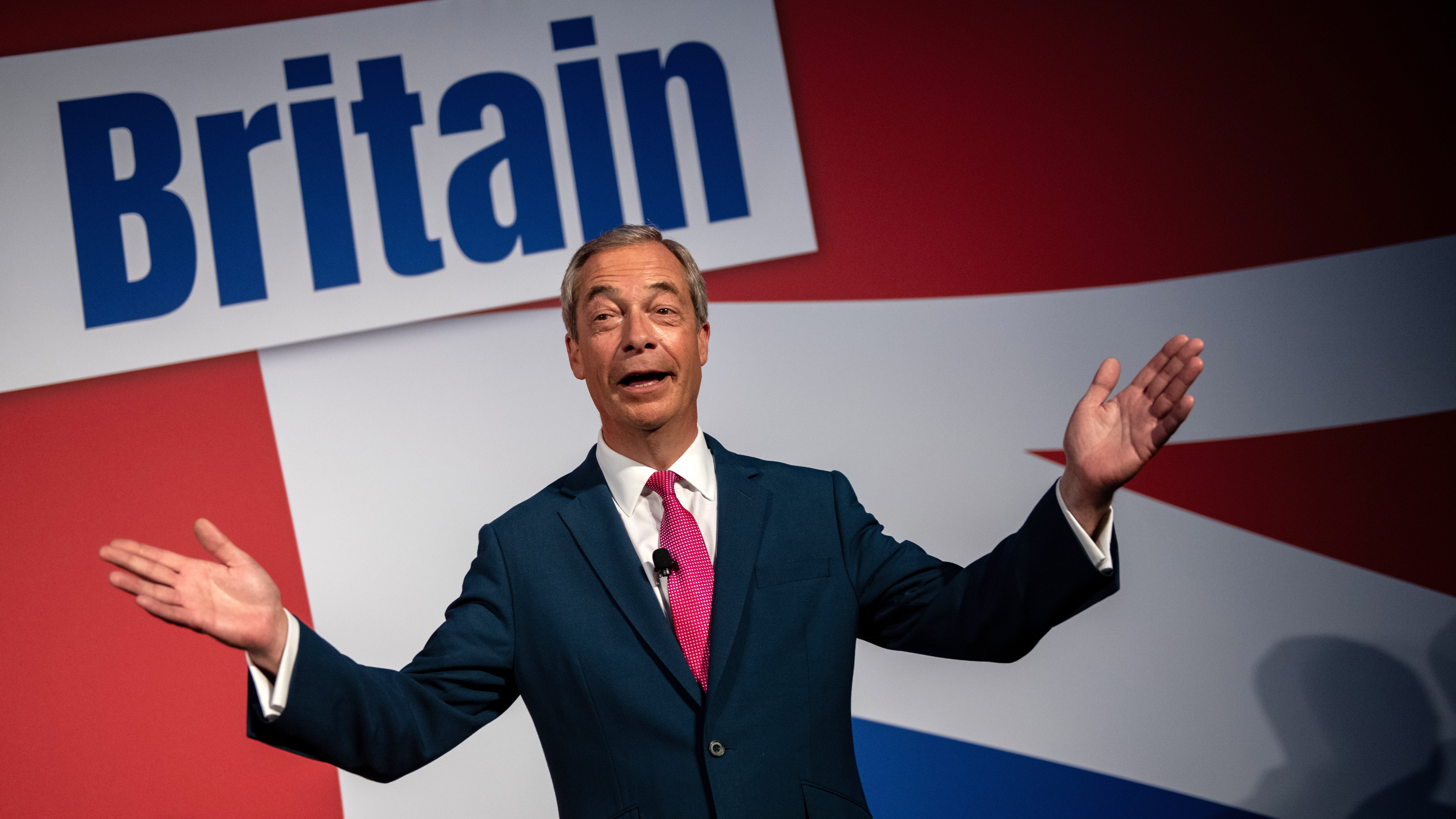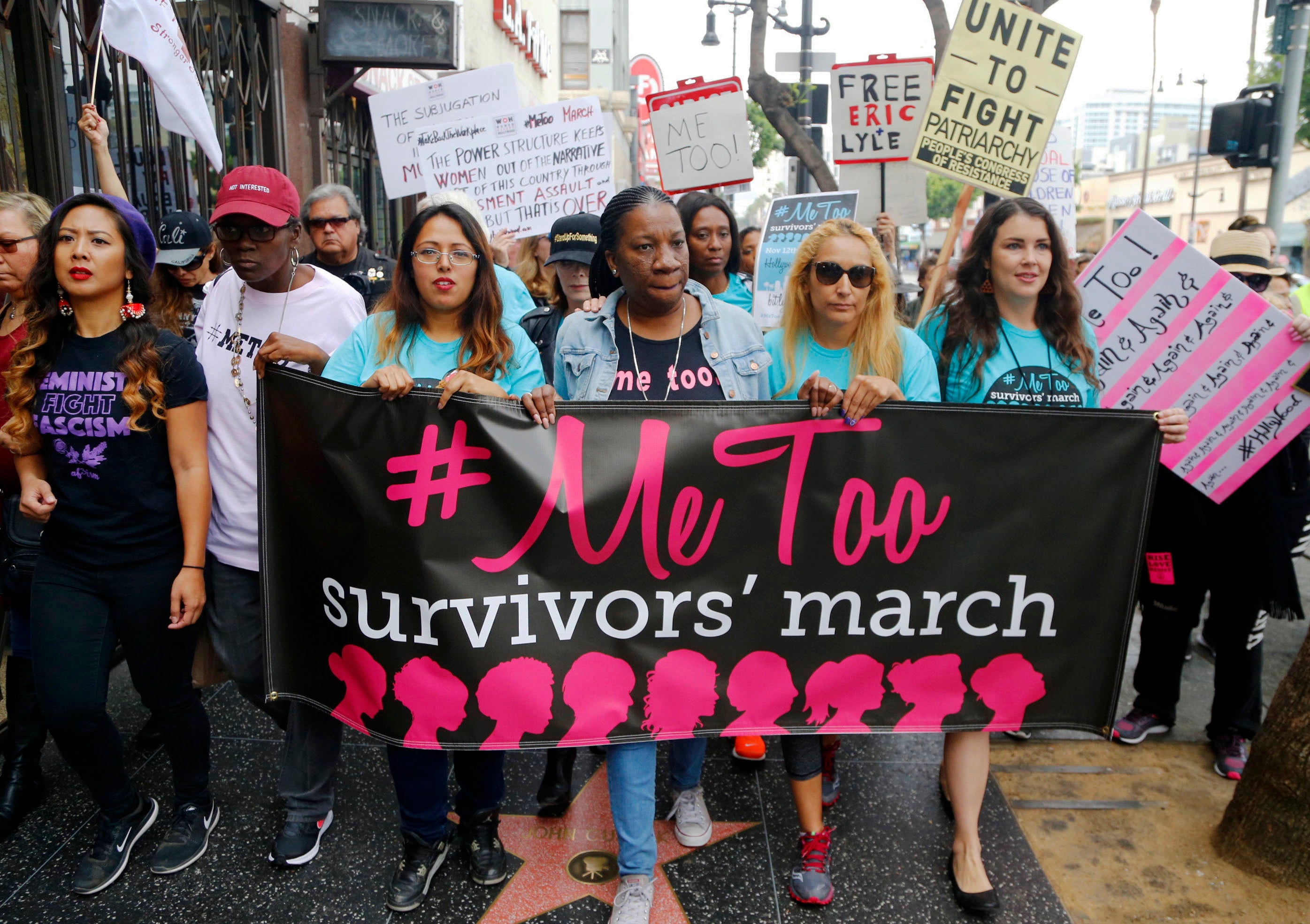The ideological divide between men and women is growing. What’s happening?
As new data suggests a widening divergence across the globe when it comes to politics, Tom Ough investigates whether we’re witnessing a renewed battle of the sexes – or whether Gen Z just need to get off social media and start talking in real life

A progressive young woman and a conservative-minded young man walk into a bar. They’re on a Hinge date. The young woman, by the young man’s account, spends the opening 20 minutes talking about the insanity of having to learn science in school, the backwardness of the Church, and the awfulness of conservatism.
The young man, having booked a table at “a rather nice restaurant”, begins to realise that an expensive meal no longer seems a good use of time and money. “I decided that I was going to tank the date,” he explained to me later, “by saying things she would find so awful that we would have to end it. And it was very interesting, because the level of what I said was actually very minor.”
Let’s call the young man Peter. Peter tells his date that he wouldn’t have voted Brexit in 2016 (when he was 17), but would vote for it today. He tells her he thinks that some of those who reach Britain illegally are economic migrants, and should be treated differently from refugees. He admits that he has voted Tory and attends church. “I did say I might vote Reform,” says Peter – Reform UK being the right-wing, rebranded “Brexit Party” originally led by Nigel Farage – “but that was because it was getting close to time, and I needed to hurry it up.” A mere 40 minutes after meeting, he and the young woman parted ways. “I’ve never seen anyone move so fast.”

The date was last Saturday. A day earlier, an analysis of survey data from across the developing world had found that “a new global gender divide” is emerging. The analysis, conducted by the Financial Times’ John Burn-Murdoch, showed that the developed world’s young women have rapidly become more liberal. Young men, however, have either become more conservative (as in the US) or been much slower to become more progressive (as in the UK). Gen Z, Burn-Murdoch concluded, is “two generations, not one.”
If real, the trend is extraordinary. The divergence is ahistorical and has accelerated remarkably quickly. Quoting similar figures to those in the FT, and noting that political views have become more tightly bound to personal identity, a Washington Post editorial warned that members of Gen Z will struggle to pair off romantically. If that hypothesis is true, then it will be exacerbated by what Alice Evans, an academic who specialises in the ideology gap, calls “the Great Gender Divergence”.
So what’s going on? Before we dig in, some caveats. Other examinations of the American ideology gap have shown it to be significantly smaller than suggested by the Gallup data used by the FT. The surveys that inform the analysis are limited (they tend to ask about voting choices rather than policy preferences) and inconsistent (they vary between countries). Even if the gap is overstated, though, it demands explanation. Something strange is happening – but what?
Social media platforms are built on engagement, and engagement comes from very precise targeting of inflammatory or polarising content
Correlation is not causation, but there is something very fishy about all this taking place from the early 2010s onwards. This was just as recommender algorithms – which are the bits of social media code that decide which posts you’re shown – became sophisticated. Ask any member of Gen Z about the divergence, and they will cite social media. As Nicole Seredenko, a 26-year-old who works on AI and bias at the recruitment firm Green Park, told me, Gen Z is more politically divided than any other age group. “We’re also the most sucked into TikTok, Instagram, and other social media platforms,” she says. “Those social media platforms are built on engagement, and engagement comes from very precise targeting of inflammatory or polarising content.” Social media survives and thrives by showing us content that stirs us, taking advantage of human weakness to draw out emotions such as righteous anger.
“When you’re dealing with something like an algorithm,” a 25-year-old female lawyer tells me, “you’re pushing people much further away from the middle ground.”
But why is gender the fissure to which social media has applied such pressure? Seredenko, who describes herself as a progressive but views the term “woke” as “silly”, believes that the divergence is mostly a consequence of young women becoming more educated – it is now young women, more than young men, who earn the majority of university degrees – and realising that the system does not serve them. Seredenko cited sexual harassment and the fact that the majority of senior positions are still held by men. This state of affairs, she said, makes women more likely to be in favour of politics that redresses those imbalances. In short, it makes them more progressive.

One event in particular seems to have had a defining role. Daniel Cox, director of the Survey Center on American Life, drew on interviews and a raft of surveys to conclude that “among women, no event was more influential to their political development than the #MeToo movement.” The movement could not have happened without social media, which enables vast whisper networks, rapid idea exchange, and large swells of communal emotion. There is no #MeToo without the hashtag.
It was a phenomenon enabled by Twitter, though each of the major social networks has been involved in its own way in the march of progressivism. Tumblr, for instance, is theorised to have been an important melting pot for concepts and terminology to do with gender identity. Instagram, the majority of whose users are female, was, in June 2020, the scene of millions of black squares, posted by people expressing solidarity with the Black Lives Matter protests.
Instagram, unlike X/Twitter, is designed such that replies to stories, which are the transient (and often annotated) images and videos that make up the majority of posts, are private. You say your piece, but people don’t see the replies. “You get a preachy, slightly dictatorial style,” said Peter, the young man who’d been on the discordant date.
It is no coincidence, he believes, that the preachy posts he sees are typically authored by women. The architecture of Instagram supports what Peter sees as a broadly feminine style of discourse. He referred to the evidence that women are more empathetic than men, a leaning that might support progressive views. This leaning, he said, combines with a tendency among women to “do disagreement very differently from men”. Peter referred to the concept, circulated among the online right, of the “longhouse”: a matriarchal culture where comfort and safety are prioritised above other considerations, and where non-conformity is punished with exclusion. Altogether, said Peter (a former volunteer for the Women’s Equality Party), social media has created a “self-reinforcing monoculture” of which young men like himself have become sceptical. A well-circulated X/Twitter thread likened Greta Gerwig’s Barbieland – safe, comfortable and stifling – to the Longhouse. Instagram comes to mind.
Women and men are becoming more and more polarised, not on classical Republican vs Democrat policy issues, as much as on ‘aesthetic’, cultural issues. It’s all about vibes
And whereas Seredenko, a rower, said she was relaxed about trans women competing in her sport, Peter described the discussion of trans participation in women’s arenas as “a wake-up point”.
“You had a lot of men basically saying, ‘Well, it’s insane, when talking about sport, that anyone would say that a man and a woman are equally strong or equally fast.’” Hence their further disillusionment with the new progressivism, and the widening of the gender gap.
Disillusionment drives some boys and young men towards the macho world of Andrew Tate. The former kickboxer is “not just an exogenous shock, single-handedly brainwashing innocent young men,” writes Alice Evans. “Rather, he’s surfing a wave of economic frustration, turbo-charged by corporate algorithms that fire-up sensationalist content for clicks.”
I spoke to a progressive Gen Z woman whose younger brother is a Tate fan. She was dismayed by her brother’s approval of Tate, but had some sympathy for those who are attracted to online spaces where his views are espoused. There has been a “hyper-focus” on correcting the inequalities of the past, she said, “and I think on net, that’s probably a good thing.” But sometimes progressive views – especially the habit of categorising people as either oppressor or oppressed – lacked nuance. The left can be “really dismissive of male pain or male struggle,” she argued, citing the oft-quoted line that “Men are trash”.
There’s some hope that the divergence is overestimated and that things will settle down. Tim Ellis-Dale, a Teesside University historian who specialises in the history of masculinity, said: “I think the likelihood is that what we’ll see is maybe women becoming a little bit more conservative as they get older, and men probably also becoming a little bit more conservative, but maybe not as much.” The gap, in other words, might narrow. Conceptions of masculinity had changed in the past, he said, referring to the replacement of the Victorian and Edwardian soldier-hero archetype with the family man model that followed the First World War. Tate’s “hegemonic masculinity”, to use the academic term, might also be transient.

One of the most enlightening takes on the Great Gender Divide comes from Ruxandra Teslo, a geneticist, Substacker and Gen Z-er. She writes that there is a contradiction between the data that supports the idea of a Great Gender Divergence, and the data that suggests that, when you break politics into specific policies, there appears to be much less difference between genders. The discord, she says, “can be explained by a simple idea: women and men are becoming more and more polarised not on classical Republican vs Democrat [the two major US political parties] substantive policy issues, for example gun control, as much as on ‘aesthetic’, cultural issues. It’s all about VIBES.”
Conservatives, Teslo argues, have given women “the ick”. She explains that this is partially a result of specific policy stances, such as the American rollback of abortion rights. She cites social media too, of course. These factors, and others, contribute to a situation where young women don’t want to identify with conservative politics, even if they might approve of some conservative policies. Young men, meanwhile, pitch up not in the longhouse, but online environments that are “driven by a relentless pursuit of transgression and a need to affirm feelings of anger and hostility”.
How can we restore some level of alignment? Evans writes that the gap could be closed by a combination of economic prosperity, the popping of filter bubbles via the regulation of algorithms, and cross-gender friendships.
By reversing the Gen Z trend towards staying indoors rather than mingling, the regulation of algorithms might support cross-gender friendships. But regulation will be extremely difficult. Even if there is political appetite for it, regulation would take years. The Great Gender Divergence might widen before it narrows.
Join our commenting forum
Join thought-provoking conversations, follow other Independent readers and see their replies
Comments
Bookmark popover
Removed from bookmarks